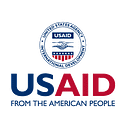Sri Lanka’s Lumbini Tea Valley Company Brews Sustainability with USAID Partnership
Collaborative Efforts Pave the Way for More than 1500 Smallholder Tea Farmers to Obtain RegenAgri Certification

Renowned globally for its distinct flavors and unparalleled quality, Sri Lanka’s tea industry is the country’s primary agricultural commodity and one of the main sources of foreign exchange, accounting for 4 percent of its GDP. However, the industry has struggled with challenges such as fluctuating market prices, escalating production costs, and the adverse impacts of climate change. Erratic weather patterns, soil degradation, pest infestations, and deforestation pose significant threats to crop yields and farmer livelihoods. Furthermore, the widespread problem of unfair pricing, especially affecting the predominantly female farmers, worsens these difficulties. These factors together exacerbate the vulnerability of smallholder tea farmers who form the backbone of the industry, emphasizing the need for comprehensive solutions.

The USAID CATALYZE Private Sector Development (PSD) Activity in Sri Lanka partnered with Lumbini Tea Valley, a leading name in Sri Lanka’s tea industry, to promote sustainable agricultural and fair trade practices, which are essential for the long-term viability, resilience, and competitiveness of any agricultural commodity. Water conservation, crop diversification, and climate-smart technologies can enhance the resilience of tea plantations to climate-related risks, ensuring stable yields and livelihoods for farmers, and improve the efficiency, productivity, and profitability of tea production.
Through PSD’s Food Security Solutions Grant, Lumbini is spearheading the certification of farmers in ‘RegenAgri’ and ‘Fairtrade’, facilitating access to new, higher-value niche markets for 1,500 of its smallholder tea suppliers. RegenAgri certification is a holistic approach to farming, prioritizing practices that revitalize soil health, conserve biodiversity, and mitigate greenhouse gas emissions. By embracing these sustainable methodologies, Lumbini aims to bolster crop resilience and productivity and play a pivotal role in combatting climate change through carbon sequestration. The RegenAgri certification enables them to gain a competitive edge amidst a fiercely competitive market.
Furthermore, Fairtrade certification ensures that farmers receive fair prices for their produce, promoting equitable trade relationships and supporting sustainable livelihoods. Lumbini’s adherence to stringent standards and best practices, including environmentally friendly practices certified through RegenAgri, underscores their unwavering commitment to safeguarding product integrity while actively fostering the well-being of the environment and local communities.

Robust programs like RegenAgri and Fairtrade certification are helping to reshape the tea industry economically and bolster women’s participation within it. By emphasizing ethical standards and sustainability, these certifications create opportunities for women’s participation, recognition, and access to resources in the tea industry.
“By embracing sustainable methods, Lumbini Tea Valley and USAID CATALYZE PSD are not only protecting the environment but also promoting fairness for Sri Lanka’s tea farmers, many of whom are women, constituting over 50 percent of the tea workforce. This enables these women to thrive with dignity and pride, recognizing their significant role in shaping a sustainable tea industry,” said Mohan Selladurai, Marketing Manager at Lumbini Tea Valley
The collaboration between Lumbini Tea Valley and USAID addresses critical challenges plaguing the agricultural sector, including escalating production costs and increasing market access, while concurrently alleviating financial constraints for small-scale farmers as the certifications will facilitate access to premium pricing, long-term contracts between farmers and buyers and a reduction of input costs.
Fair, regenerative practices play a pivotal role in addressing the growing consumer demand for ethically-sourced and environmentally-friendly products. The adoption of these sustainable practices enables Sri Lanka’s tea industry to remain competitive in the global market while upholding its reputation for quality and integrity.
In February, Lumbini attended BIOFACH 2024, the world’s premier trade fair for organic food, in Germany. At the event, which drew more than 35,000 attendees from 135 countries, Lumbini showcased its groundbreaking initiatives in tea production and highlighted its strategic partnership with USAID. This participation was crucial for Lumbini to attract new international partners and buyers willing to pay for the certifications, thereby expanding their market reach and establishing connections within the global organic food industry.
Through its pioneering efforts, Lumbini, with USAID support, is redefining the standards within the tea industry and inspiring stakeholders across sectors to embrace regenerative and fairer practices, thereby paving the way for a more environment and socially conscious future.
To learn more about Lumbini Tea Valley and their commitment to sustainability, visit their website. For further information on USAID CATALYZE PSD, please click here.
